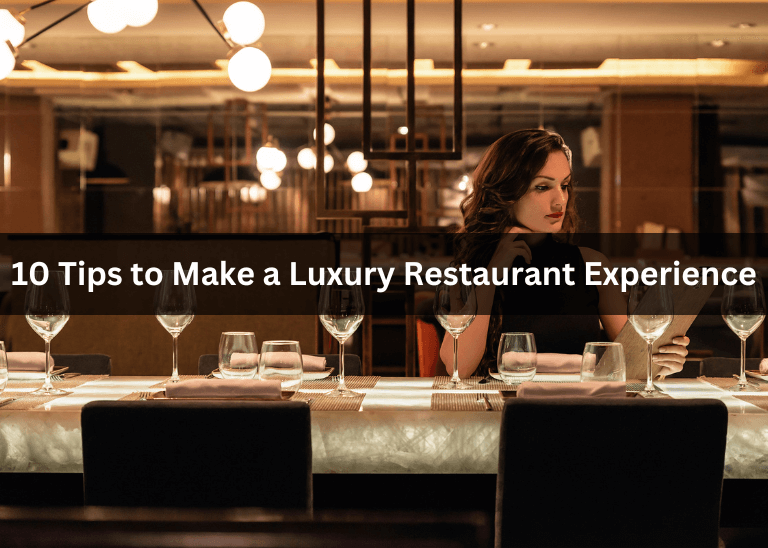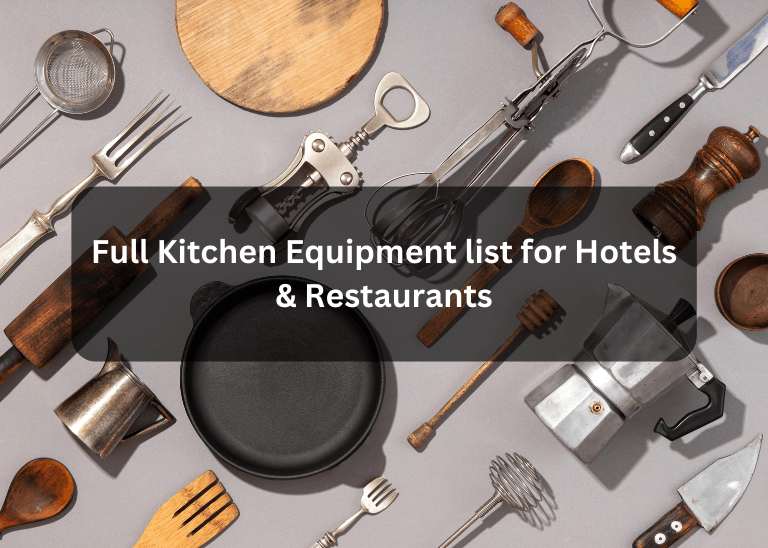10 Tips to Make a Luxury Restaurant Experience

In our fast-paced lifestyles, restaurants offer a convenient option to have delicious food varieties when individuals don’t have the time or energy to cook at home. They provide quick and easy access to various cuisines, saving time and effort. These exquisite places serve as venues for social gatherings, meetings, and celebrations.
Moreover, they provide spaces where people can connect, interact, and enjoy meals together, fostering relationships and strengthening social bonds. Restaurants offer diverse food options, catering to different tastes, dietary preferences, and cultural backgrounds. This variety allows individuals to explore new cuisines and flavors, enhancing their culinary experiences.
Dining out provides an opportunity for relaxation and enjoyment, allowing individuals to unwind and escape from the stresses of everyday life. Restaurants often offer ambiance, entertainment, and a break from routine, making dining experiences pleasurable and memorable. When it comes to creating a luxurious restaurant experience, it involves attention to detail across various aspects of the dining experience, from ambiance to service and cuisine. Here are some tips to make a luxury restaurant experience:
1. Enhanced Ambiance and Decor
Invest in high-quality interior design with elegant decor, luxurious furniture, and tasteful lighting.
Pay attention to details such as table settings, linens, and tableware to create a sophisticated atmosphere. Consider factors like music selection and volume to enhance the overall ambiance.
2. State-of-the-art Service
Train staff to provide attentive, personalized service with a focus on anticipating and fulfilling guests’ needs. Staff should be knowledgeable about the menu, ingredients, and wine pairings, and able to make recommendations confidently. Maintain a high staff-to-guest ratio to ensure prompt service and attention to detail.
3. Exquisite Cuisine
Offer a menu featuring high-quality, fresh ingredients prepared with skill and creativity.
Tailor the menu to reflect seasonal and locally sourced ingredients when possible.
Provide a variety of options, including vegetarian, vegan, and dietary-restricted choices, without compromising on quality or presentation.
Also Read: HOW TO INCREASE THE LIFESPAN OF YOUR COMMERCIAL KITCHEN EQUIPMENT
4. Attention to Detail
Consistency is key; ensure that every aspect of the dining experience, from food presentation to service, is consistently excellent. Pay attention to small details such as temperature control of food and beverages, cleanliness of the restaurant, and prompt resolution of any guest concerns.
5. Exclusive Offerings
Offer unique and exclusive experiences, such as chef’s tasting menus, wine pairings, or private dining options. Curate a wine list featuring rare or premium wines from around the world, along with expert sommelier recommendations.
Also Read: HOW TO INCREASE THE LIFESPAN OF YOUR COMMERCIAL KITCHEN EQUIPMENT
6. Seamless Reservation and Arrival Experience
Make the reservation process seamless and user-friendly, whether online, by phone, or through a dedicated app. Ensure a smooth arrival experience with valet parking, if feasible, and a warm welcome from staff upon entry.
7. Privacy and Comfort
Provide ample space between tables to ensure privacy and comfort for diners.
Offer private dining rooms for special occasions or business meetings, equipped with state-of-the-art technology if needed.
8. Attention to Dietary Restrictions and Preferences
Cater to various dietary restrictions and preferences, including allergies, gluten-free, and vegetarian/vegan options. Train staff to handle special requests with care and attention to detail.
9. Experiential Elements
Consider incorporating experiential elements such as live music, interactive cooking demonstrations, or themed dining nights to enhance the overall experience.
10. Feedback and Continuous Improvement
Encourage feedback from guests to identify areas for improvement and ensure that the restaurant continually evolves to meet and exceed guest expectations.
By focusing on these key areas, a luxury restaurant can create a memorable and exceptional dining experience that keeps guests coming back.
Apart from providing luxurious spaces and serving as venues for social gatherings, restaurants play a crucial role in contributing to the local economy by creating jobs, generating revenue, and supporting local suppliers and producers. They also play a vital role in the economic growth and development of communities, particularly in urban areas. They are platforms for culinary innovation and creativity, showcasing the talents of chefs and food artisans. They introduce people to new ingredients, cooking techniques, and gastronomic trends, enriching their culinary knowledge and appreciation.
Overall, restaurants play a multifaceted role in our busy lives, offering convenience, socialization, variety, leisure, economic benefits, and opportunities for culinary exploration. They contribute to the vibrancy and diversity of our communities, making them an integral part of modern society.




